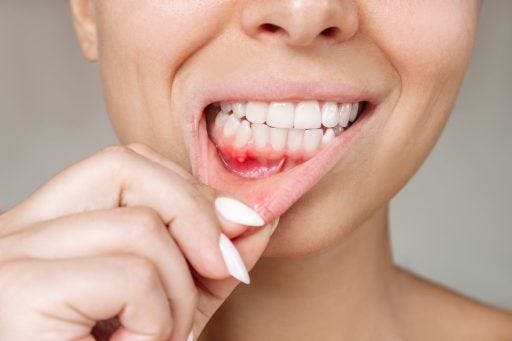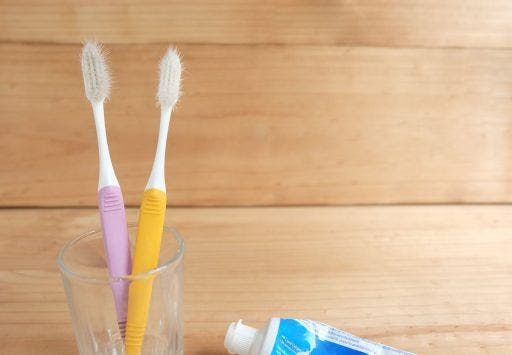Dealing with swollen gums is no walk in the park. Inflammation can make everyday activities like eating, drinking, or talking uncomfortable. Additionally, the sight of bleeding teeth can be embarrassing, especially in social situations. And without proper treatment, these mild oral concerns can progress into periodontal disease.
So, nip the problem in the bud. Take proactive measures to prevent gum-related issues by following these simple and practical tips.
What Is Periodontal Disease?
Periodontal or gum disease is a severe infection that affects the soft tissue surrounding the teeth. Severe cases can lead to the loss of tissues that hold teeth in place.
Gum Disease Causes
According to Healthdirect Australia, gum disease is very common, with three in every ten adults suffering from moderate to severe cases. Bacterial and plaque buildup is often the culprit.
Other factors that affect and exacerbate periodontal disease include:
- Genetics
- Low-nutrient diet
- Consumption of tobacco products
- Lifestyle choices
- Systematic or autoimmune diseases
- Diabetes
- Hormonal changes
- Excessive alcohol use
- Certain medications
Gum Disease Symptoms
Watch out for the following warning signs that point to periodontal disease:
- Swollen gums
- Red or bleeding gums
- Tooth sensitivity
- Loose teeth
- Bad breath
- Painful chewing
Care Tips to Prevent Periodontal Disease

As research continues to establish a connection between gum disease and serious health conditions, the need for prevention becomes more urgent. Get started with these care tips:
1. Practise good oral hygiene.
Maintaining proper oral care is essential for healthy gums. Simply brushing your teeth is not enough to prevent periodontal disease. You must also floss regularly and incorporate an antibacterial rinse that is low in alcohol to enhance your overall oral health.
If you’re using orthodontic devices like ClearCorrect aligners, take the time to cleanse them thoroughly. Follow the prescribed instructions for a deep clean and always keep them stored in their case when not in use.
2. Stay hydrated.
A dry mouth stems from various factors, with insufficient saliva being a common culprit. And without this secretion, your teeth and gums can become a breeding ground for bacteria. Consequently, microbial buildups in the oral spaces can lead to infections, resulting in gum disease.
Tackle this issue by staying hydrated. Drinking enough water helps combat dry mouth and stimulates saliva production, which acts as a natural defence against harmful germs. Yes to more H2O, please!
3. Stick to a healthy diet.
Maintaining a healthy diet is another crucial factor in preventing periodontal disease. It is always best to steer clear of sugary or acidic foods and drinks. Stick to a well-balanced and nutrient-packed diet to help boost your immunity and reduce the risk of complications.
4. Increase vitamin C intake.

Research also links gum disease with vitamin C deficiency. A study published in Frontiers in Nutrition confirmed that increasing vitamin C intake can significantly prevent, treat, and reduce gum inflammation, recession, or bleeding. So, consume more fresh fruits and vegetables to get an adequate dose of ascorbic acid.
5. Reduce stress levels.
Chronic stress can have a significant impact on teeth, and many people are unaware of this connection. Research from BMC Oral Health showed that persistent stress contributes to the development of oral diseases. It also weakens the immune system, making it harder for your body to fight off any infections. Thus, the study suggested close monitoring of patients experiencing stressful lives and vigilant maintenance of their oral health. Take this as a sign to try more relaxing activities and enjoyable hobbies!
6. Quit smoking.
Smoking is never an option as it causes numerous dental issues, including plaque, bad breath, and stained teeth. The Journal of The Academy of Medical Sciences of Bosnia and Herzegovina also identified smoking as a risk factor for gum conditions. It highlighted the detrimental effects of smoking on human microflora, significantly compromising gum health. How’s that for a reason to finally quit tobacco products?
7. Replace your toothbrush often.

Newer toothbrushes are soft and supple, providing gentle cleaning for your teeth and gums. Conversely, matted and frayed bristles can damage teeth and inflame gums, increasing the risk of bacterial growth. To avoid periodontal disease, dentists recommend replacing your toothbrush every three to four months.
8. Visit your dentist regularly.
Don’t face the battle against gum disease alone. Regular visits to your dentist are crucial in preventing periodontal problems. During these appointments, your dental care provider can monitor your oral health and detect issues early on. They can also prescribe how to treat gum disease and other conditions like cavities, misalignment, gingivitis, and more. Make it a habit to schedule dental appointments every six months.
Many people ignore the symptoms of periodontal disease, only to find themselves dealing with a more advanced condition. Don’t make the same mistake! Prioritise your dental well-being by taking the necessary precautions and consulting your doctor about periodontal disease treatments. Follow the care tips mentioned above to ensure your teeth and gums are always in tip-top shape.
References:
Borojevic, T. (2012). Smoking and Periodontal Disease. Materia Socio-medica, 24(4), 274.
Department of Health & Human Services. (n.d.-b). Gum disease. Better Health Channel.
Healthdirect Australia. (n.d.-b). Gum disease. Healthdirect.
Murererehe, J., Uwitonze, A. M., Nikuze, P., Patel, J., & Razzaque, M. S. (2022). Beneficial Effects of Vitamin C in Maintaining Optimal Oral Health. Frontiers in Nutrition, 8.
Periodontal Disease | Oral Health Conditions | Division of Oral Health | CDC. (n.d.).
Shanbhag, V. K. L. (2017). Oil pulling for maintaining oral hygiene – A review. Journal of Traditional and Complementary Medicine, 7(1), 106–109.
Taking Care of Your Teeth and Mouth. (n.d.). National Institute on Aging.
Vasiliou, A. K., Shankardass, K., Nisenbaum, R., & Quiñonez, C. (2016). Current stress and poor oral health. BMC Oral Health, 16(1).



